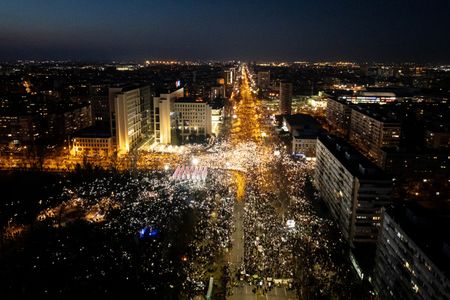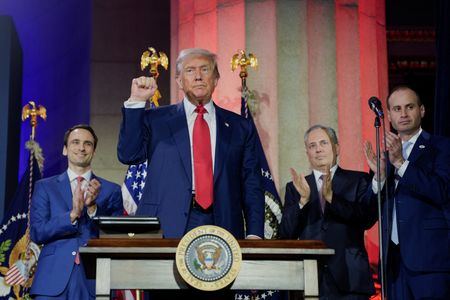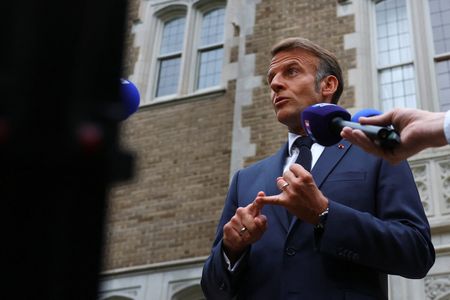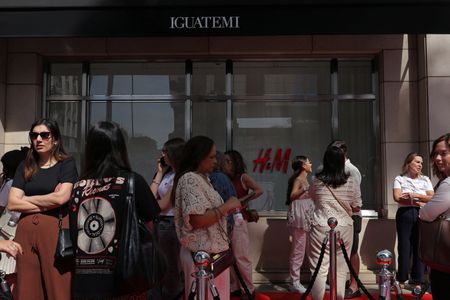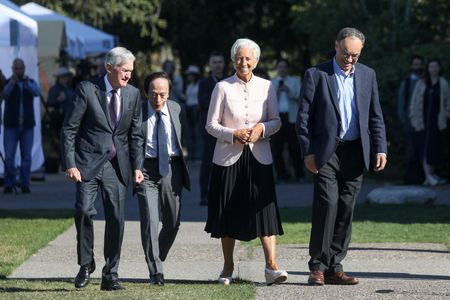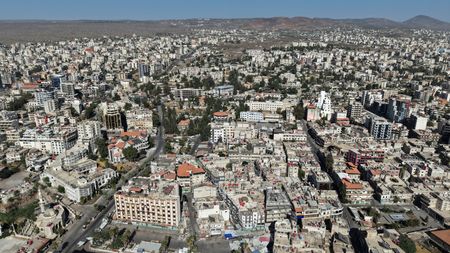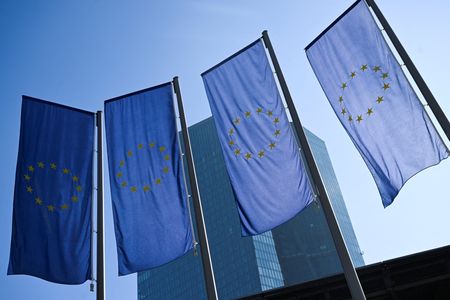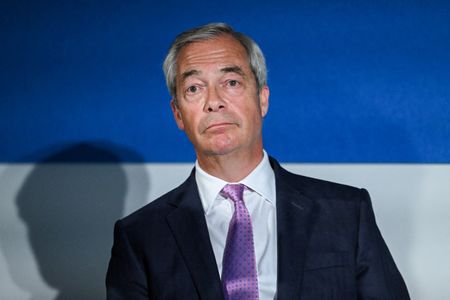BELGRADE(Reuters) – Tens of thousands of people blockaded three bridges on the Danube River in Serbia’s second city of Novi Sad on Saturday in the latest anti-government protest over a railway station disaster that killed 15 people in November.
Protests over the deaths caused by a roof collapsing at a station in Novi Sad quickly ballooned and spread across the Balkan country, triggering a political crisis.
Prosecutors have so far charged 13 people over the disaster, but protesters, opposition parties and many Serbians blame the tragedy on corruption within President Aleksandar Vucic’s government and mismanagement.
Students from Belgrade – some of whom had covered the 80 km distance on foot – merged on Saturday with residents and university students of Novi Sad, the capital of the Vojvodina province in Serbia’s north.
After rallying for a few hours on two of the bridges, they planned to remain until Sunday on Freedom Bridge, the largest of the three.
Some of the protesters held banners reading “Your hands are bloodied!” and “Corruption kills!”
Milos Vucevic resigned as prime minister this week, the highest-ranking official to step down over the disaster. Before him, two other ministers had stepped down.
Vucevic’s resignation has rocked the government and Vucic, a centre-right populist and former Serb nationalist firebrand who has held a grip on power since he became prime minister in 2014 and president in 2017.
Although his role is meant to be largely ceremonial, he is viewed as wielding huge influence over the ruling Serbian Progressive Party and the government.
Critics have accused Vucic and his Serbian Progressive Party (SNS) of bribing voters, violence against opponents, stifling media freedoms and ties with organised crime – charges he and the SNS deny.
“Our goal is to have all our demands fulfilled so that we can finally start to live in a state of law,” said protester Ana Hasinbegovic.
Vucic, who said he would decide next week whether to nominate a new prime minister or trigger snap elections in April, said on Saturday that he will not step down because of popular discontent.
(Reporting by Aleksandar Vasovic and Branko Filipovic; Editing by Renee Maltezou and Jan Harvey)

